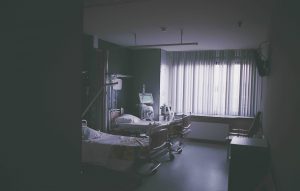 Pharmaceutical companies Mylan Inc. and Mylan Specialty L.P. agree to pay $465 million to settle a lawsuit brought under the False Claims Act (FCA). According to the FCA-based suit brought by a whistleblower, Mylan intentionally misclassified EpiPen as a generic drug – knowing it was a brand name drug – in order to not have to pay higher rebates to Medicaid. EpiPen is a brand name drug because there is no therapeutically equivalent drug provided by other manufacturers. Mylan is the single source of EpiPen. By willfully and incorrectly deeming it a generic drug, Mylan was not required by law to pay a higher rebate to Medicaid, thereby retaining a greater amount of money and increasing their profits.
Pharmaceutical companies Mylan Inc. and Mylan Specialty L.P. agree to pay $465 million to settle a lawsuit brought under the False Claims Act (FCA). According to the FCA-based suit brought by a whistleblower, Mylan intentionally misclassified EpiPen as a generic drug – knowing it was a brand name drug – in order to not have to pay higher rebates to Medicaid. EpiPen is a brand name drug because there is no therapeutically equivalent drug provided by other manufacturers. Mylan is the single source of EpiPen. By willfully and incorrectly deeming it a generic drug, Mylan was not required by law to pay a higher rebate to Medicaid, thereby retaining a greater amount of money and increasing their profits.
More on Mylan’s Actions
The purpose of the Medicaid Drug Rebate Program is to ensure state Medicaid programs were not injured to price gouging by manufacturers that were the only source of a drug, like EpiPen. When a drug manufacturer is a single course for a medication, there is no market competition to balance the price of the drug. Instead, that manufacturer can continually raise the price and there will always be a demand for the drug out of necessity.
 Healthcare Fraud Lawyer Blog
Healthcare Fraud Lawyer Blog


 On August 10, the Department of Justice (DOJ) announced victory in another healthcare fraud case. A federal
On August 10, the Department of Justice (DOJ) announced victory in another healthcare fraud case. A federal On July 24, the U.S. Attorney’s Office for the Central District of California announced that Celgene Corp., a pharmaceutical manufacturer headquartered in New Jersey,
On July 24, the U.S. Attorney’s Office for the Central District of California announced that Celgene Corp., a pharmaceutical manufacturer headquartered in New Jersey, On July 13, Attorney General Jeff Sessions and Department of Health and Human Services (HHS) Secretary Tom Price, M.D., announced the Department of Justice’s largest ever
On July 13, Attorney General Jeff Sessions and Department of Health and Human Services (HHS) Secretary Tom Price, M.D., announced the Department of Justice’s largest ever


